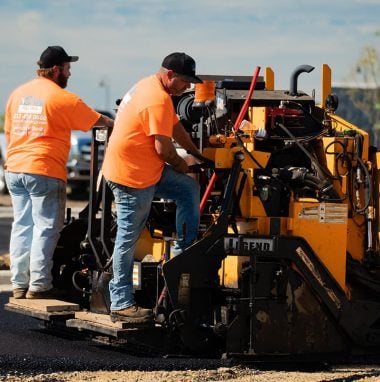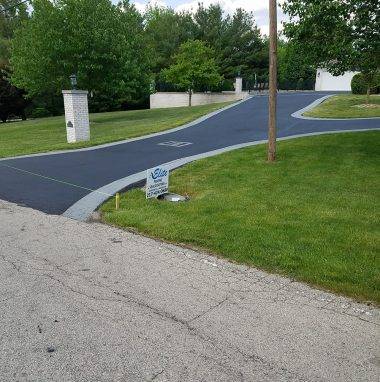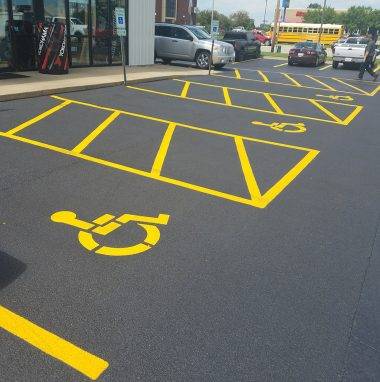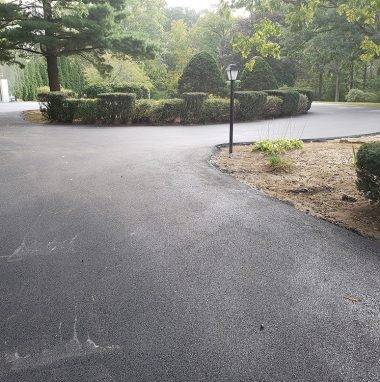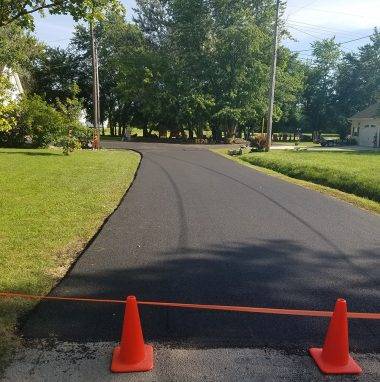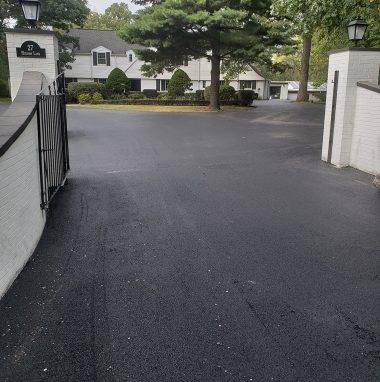Asphalt Mahomet, IL
Considerations for RAP Driveways
You need a new driveway but aren’t sure how to choose the best type of asphalt for your needs. Have you ever considered RAP? This paving option provides you with a variety of benefits, minimal downsides, and is a good choice if you’re concerned about the state of the environment.
Is RAP Paving Best for Your Situation?
RAP stands for “recycled asphalt pavement” and started becoming a popular option for many people almost 40 years ago. During the 1970s oil embargo crisis, the cost of crude oil skyrocketed and caused a variety of economic issues. One of these was the difficulty in obtaining materials for asphalt. As a result, RAP was created to help avoid this problem and to keep the costs of construction down.
RAP uses broken down or reclaimed old pavement and mixes it in with newer types of pavement to create a durable and inexpensive mix. Just think of it as the paving world’s answer to recycled paper. Old and no-longer-used slabs that would otherwise rot in dumps or landfills can instead be turned into RAP to provide the paving world with an inexpensive and useful range of materials.
After the oil embargo ended and prices stabilized and decreased, RAP remained a popular choice for a large number of people. The environmental movement of the 70s extended into the 80s and 90s and a more extensive variety of companies started utilizing this type of pavement. It can be used for a variety of purposes, including industrial, commercial, and residential projects.
If you are interested in using RAP for your driveway, you should understand the benefits and drawbacks of this paving material. The benefits do outweigh the negatives when it comes to RAP, but not every job will need this type of pavement. This fact is particularly true of driveways because they are often so long and exposed to many kinds of weathering issues.
Positives and Negatives About RAP Paving
One of the most significant benefits of RAP is that it decreases the need for virgin aggregate and binders for your pavement. These materials typically have to be mined or dug up and delivered to a paving provider before your asphalt is mixed. However, RAP minimizes this problem by providing your paving professionals with a surfeit of these materials at a decent price.
As a result, your pavement may cost a little lower to install. And, just as importantly, RAP also helps to decrease the amount of material being sent to dumps and landfills by recycling old pavement for new projects. This environmental boost is a significant aspect of this type of pavement, particularly if you are dedicated to helping make the world a cleaner and less polluted place.
In spite of these benefits, there are a few issues common with RAP materials. For example, the recycled material may have some inherent design flaws that make it a little stiffer and less flexible. While this issue is typically minor, it can compromise the strength of your concrete. You may end up paying more for your RAP even though it uses less virgin materials to make.
This extra cost will vary depending on your paving professional, but occurs when the price of recycling the old pavement ends up being more than the amount of creating new and virgin pavement. Other downsides include increased susceptibility to water damage and lower thresholds for temperature damage. These potential problems don’t occur in all RAP but should be understood before investing.
Things to Consider About RAP
When debating RAP materials for your driveway paving project, you need to make a series of considerations to ensure that you get the best results. The following questions should all be asked before you install any pavement to ensure that you get the most exceptional paving possible for your needs:
- What is my budget? – Make sure that RAP fits within your budget for your driveway – if it is a few hundred dollars more than anticipated, it may still be worth the extra cost.
- Will my driveway be exposed to a variety of temperatures? – As RAP pavement may be more susceptible to temperature-based damage, you may want to avoid it if you live in an area with extreme temperature changes.
- What water-removal methods will I use for my pavement? – Water damage on RAP can be avoided by using a variety of removal methods, such as vacuuming the water or building a small angle on the surface of the driveway that moves water away.
- How can I maintain my pavement and keep it stable? – Regular maintenance procedures, such as cleaning your surface and fixing small cracks, help to keep your RAP strong. Make sure to schedule some maintenance like this to avoid any issues.
- Is the extra environmental protection more important to me than the cost? – Most importantly, ask yourself if a potentially higher installation cost is a smart investment for you or if you need to rethink your budget before installing a new RAP driveway.
Ask yourself all of these questions to gauge whether or not a RAP driveway is a right choice for you. As a growing number of asphalt professionals are integrating this type of material for their projects, you should be able to find somebody who can utilize this construction method for your needs. Make sure to price them out correctly to ensure that you get a great project at a price that you can afford.
Professional Recommendations Are Available
If you’re considering RAP for your new asphalt project and you want a professional to provide you with the best possible result, please don’t hesitate to contact us at Elite Paving & Sealcoating right away to learn more. Our experts will work with you to help you better understand not only RAP but other types of paving methods so that you can choose which is the best for your Mahomet, IL and Central Illinois area pavement needs.


